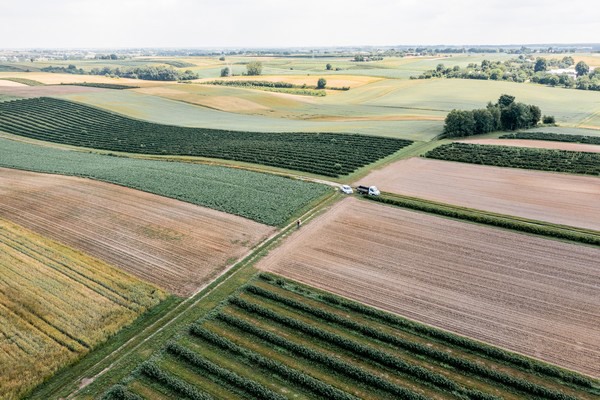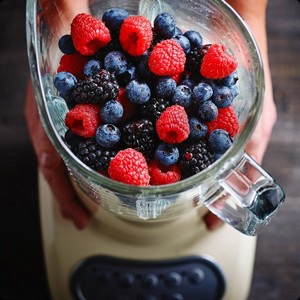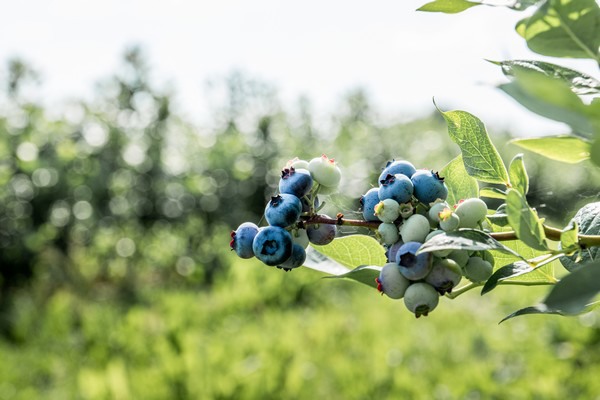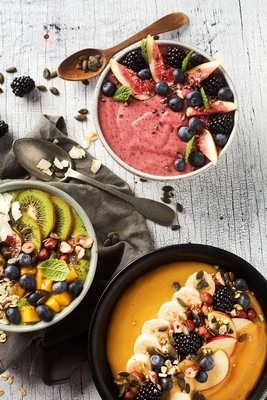In times when logistics chains are increasingly disrupted, but quality must remain high, frozen products are sometimes considered a good alternative to fresh produce. So says Pieter Delbaere of Crop's. "Especially since the pandemic, frozen fruit is increasingly seen as a full-fledged, affordable product to use in cakes, granola, and smoothies," he begins.

Crop's is a second-generation Belgian family business. It has produced and marketed frozen fruit and vegetables and ready-to-eat meals since the 1970s. "Initially, we traded vegetables but found fairly quickly that a trader's role will be over sooner or later. It was, thus, decided to switch to producing frozen vegetables. A few years later, the step to meals was also pretty easy."
"You just add some sauce and protein to the vegetables. We started to focus more and more on frozen fruit, too, which we came into contact with in the areas where we sourced our vegetables. Frozen vegetables seem to have had a place on store shelves for some time now. We, however, saw plenty of potential for fruit and have been very active in that for the last 20 years," says Pieter.
 In 2017, the Flemish company split its activities into three entities: vegetables, fruit, and ready meals. "Each has its team and expertise."
In 2017, the Flemish company split its activities into three entities: vegetables, fruit, and ready meals. "Each has its team and expertise."
Pieter is the general manager of Crop's Fruits, Crop's fruit branch, as the name suggests. The company has several overseas processing plants.
They are in Poland, Serbia, and Morocco. It also has a 500+ hectare pineapple plantation and processing facility in Costa Rica. "We grow only pineapple there, which we process and sell. We work with local growers and various fruits at other locations," Pieter explains.
Building long-lasting partnerships with growers in the production areas is how Crop's ensured its growth in the past decades. "We usually start with a single product group in one country. But, due to, say, climate-related changes, it may be that, over time, you're processing multiple varieties - which people decide to cultivate and offer there - in one plant."
"For our sourcing, we thus prefer areas where we have a factory so we can have close contact with growers. That's increasingly important nowadays because issues like traceability and sustainability are becoming more and more important. Then you must be close to the source, so you know what's going on and can move quickly if something happens," says Delbaere.
Frozen vs. fresh
"At their base, our domains intersect the fresh sector. We often work with the same raw material as that market. We work with growers in Morocco, for example, who also supply fresh produce to British, Spanish, Dutch, and Belgian retailers. But when Spain enters the fresh market, Morocco is no longer competitive due to logistical distance."
"However, they're still harvesting good strawberries. Most of those volumes then come to us. The only exception is everything concerning raspberries and blackberries. Different varieties are grown in Serbia than the fresh market is used to consuming. Those are juicier, which makes them suitable for industrial use," Pieter points out.
The frozen market also has ties to the fresh one. "With strawberries or blueberries, for instance, the first 30% goes to the fresh market; worldwide, the remaining 70% remains for the industry in a broader context. If there's a bad harvest, as you see now in Peruvian blueberries, the fresh market becomes much more flexible with how the fruit should look. Suppose the harvest is only 70%, it normally is."
"The fresh market proportions then stay the same, but we must make do with far less. So, an inferior crop's full impact falls on the industry. Then, everyone begins looking at other countries of origin. South Africa suddenly came into the picture; they expect a good harvest. Buying patterns then shift quickly, and being present in several places is advantageous. That's how we respond to those shifts," Pieter declares.
He says the frozen segment has won ground with consumers recently and describes the advantages of frozen products over fresh fruit. "In the fresh market, it's at least as much about logistics as the product itself. If fresh raspberries remain at the port too long due to strikes or other issues, the product's no longer sellable. We work with long-shelf products, so a container can be plugged into the mains when it's delayed and sit there for a week or two, or even six months. The product is then still good to sell."

According to Pieter, shoppers are increasingly realizing that. "Often in our world, people know the fresh product but want a cheaper alternative for certain uses. Unfortunately, freezing and preservation techniques aren't yet such that the fruit is always perfectly preserved visually so as to compete aesthetically with the fresh market."
"But for use in baking, smoothies, or granola, they've proven their worth. That upward trend is generational because, especially in the U.S. and the U.K., frozen fruit gets lots of social media attention, making it more acceptable to use those products for certain things," Delbaere explains.
Full-fledged product
"The pandemic and the inflation that followed accelerated that. Raspberries, for instance, are priced at €10 to €14 for fresh versus €5 to €6 for the frozen product. You see those ratios in blueberries, too. Also, during the pandemic, people switched from fresh to longshelf. They didn't dare visit stores."
"So pasta, canned vegetables, and frozen fruit reigned supreme. Products that can be kept longer and used in many different ways. That popularity declined somewhat after the pandemic, but at least 30% of, especially, price-conscious buyers remain," Pieter continues.
He hopes that trend will spill over into the professional world, too. "Chefs have demonized frozen fruit for a long time. We often tell a story at the company, though. I'm a fan of T.V. cooking shows. One used frozen peas. The judges raved about it because 'there's no better pea to be found than a frozen one'. Two episodes later, another contestant made tiramisu with frozen red fruit. According to the judges, that's 'not done; a real chef doesn't use frozen fruit'."
"I've always found that a striking contradiction. Vegetables have an entirely  different reputation; fruit still has some catching up to do. Even there, the techniques have improved so much that we can deliver a full-fledged product. The market has professionalized," Pieter reckons.
different reputation; fruit still has some catching up to do. Even there, the techniques have improved so much that we can deliver a full-fledged product. The market has professionalized," Pieter reckons.
Long-standing relationships
The frozen sector, nonetheless, has its challenges. "I believe labor availability is the first of those for our sector. Having to harvest strawberries at 40°C in Morocco is an awful job."
"There's almost no one willing to do that anymore. We therefore want to try to guide and help our colleagues and partners by offering new technologies. Unfortunately, reliable soft fruit-picking robots aren't yet widely available. Still, there are developments we keep a close eye on and where, together with local growers, we consider the possibilities," Pieter states.
"An example of that collaboration is a farm in Serbia, where the grower and we are testing new raspberry varieties. Growers often hesitate to try new varieties because you only get the first return after two years. If it's unsuccessful, you're in deep trouble. That's where we can help offer the best possible product. I feel that describes the added value of investing in long-term relationships with local growers well."
"The frozen segment has masses of potential. The pandemic, inflation, and now the drive for convenience have made that clear. We want to take more steps forward in that, too. I hope one day to have reached a point where we can convince everyone so much that T.V. show juries will say, 'There's no better berry than a frozen one'," Pieter concludes.
For more information:
Crop's Fruits
148 Oostrozebeekse Street
8710, Ooigem, Belgium
Tel: +32 (0) 566 76 300
Email: [email protected]
Website: www.cropsfruits.com
